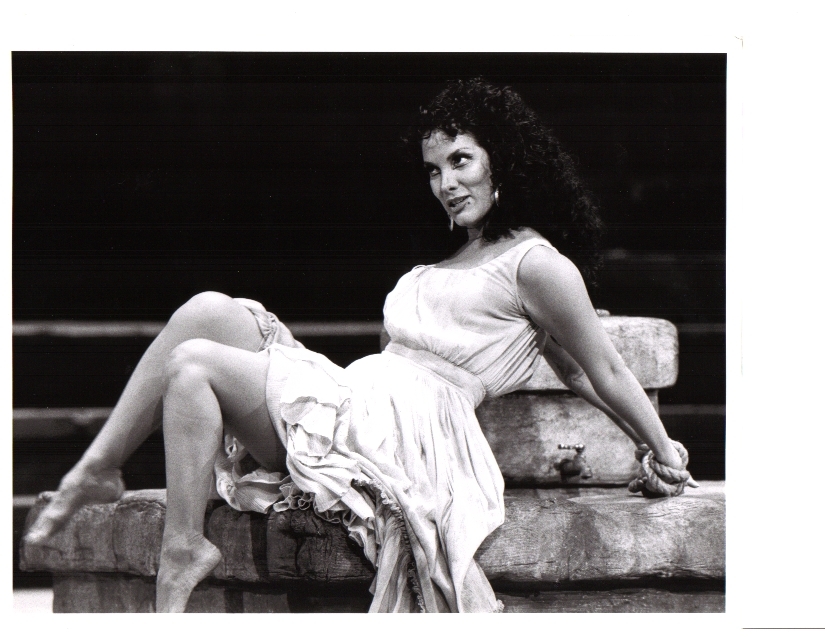The other day I was teaching a class I loved at the University exploring the roles of the well-known opera Carmen. What do we as actors have to do with a character from the late 19th century? Actually, a lot. Other than the occasional alien I’ve met, most of us are human, dealing with the same problems, desires, lusts and problems that every other person has, no matter their century.
Here is a framework to create a character that will be believable, to you the actor, and then, to your audience.
Language
As these performances will be in French, you need to have an exact translation of every word you are singing. There is no substitute for that. Secondly, you need to have a colloquial translation that makes sense to you. You need to be able to create a monologue that you can just rattle off, for any moment of the work.
A big help for this particular opera is the [ignore the fact it says Italian – it is French, and the 376. dollar price tag! a mistake — grab a used edition for 3.99 – as a matter of fact grab every available Dover edition for every opera you might do — a huge help!] Carmen (Dover Opera Libretto Series) (French and English Edition)
And yes, if you intend to become an opera singer specializing in German opera for example, you better darn well learn to speak German. It doesn’t have to be perfect, but can you imagine looking up every single word of a Wagnerian opera? That thought alone would drive me to Rosetta Stone!
Do your research
I find it helpful to research any character you’re creating. Mind you, this is not the only way to create a character. If you are the kind who feels an incredible emotional link with the character you’re working on, you may not need to do a lot of research. But isn’t it nice to be able to have facts and then discard them and go down another path with your creation?
It’s also helpful to know something about the version of the production you’re doing. In this case we are doing the Peter Brook interpretation of Carmen and there are couple of wonderful books by Mr. Brook that might help you in understanding why he approaches the opera as he does. One of them is The Open Door.
Prosper Merimee was a historian who was fascinated by the gypsies of his time judging by the detail with which he described their character and their language. He wrote the story of Carmen in 1845. George Bizet set it to music thirty years later.
Google gypsies in the late 1900 and find out about gypsies of today. They are a fascinating race of people and there is nothing glamorous about their life or their plight. I encountered many gypsies while living in Italy. I was on the train going back to Stresa where I lived, and I had a funny feeling in my stomach. I switched sides in my compartment and braced my feet on the opposite seat. I heard screams and sure enough, a band of four gypsies with the boldest, blackest eyes in the world and a ferocious attitude, fought mightily to get into my compartment. I clasped both my hands around the handle of the sliding door so because I was braced beautifully, they couldn’t get in. They ran off the train just as my husband was getting on and I had quite a tale to tell him as we pulled out of Milano’s Central Train Station. You can be darn sure this affected how I played my next Carmen.
Who is this character in their text?
The next thing you look need to look at is, who is this character according to the words they speak or sing? In this case, unlike Wagner, for example, two different people wrote the text and the music. Sometimes text and music complement each other, sometimes not. Learn to pay attention to that. Carmen’s words reflect her character perfectly.
You’re asking the impossible. Carmen has never lied. Her mind can’t be changed. Everything is over between her and you. I have never lied, everything is over between us
Jose on the other hand, thinks she needs saving:
Carmen, there is still time. Ah, my Carmen, let me save you that I adore! Let me save you, and save myself with you
Carmen: No, I know very well that this is the hour. I know very well you will kill me; but if I live or if I die, no, no! I will not give in to you.



